
臺灣非營利專業書評媒體。Openbook編輯部將提供原生報導,文化觀察,人物採訪與國內外重大出版消息。 https://linktr.ee/openbooktaiwan
Does the screenwriter of "Conversation" have to write a story outline? Liu Zijie vs Cai Yicheng on "Playwright Ban Yuan Yuji"

Photography| Qin Dabei
➤Why is it "light birth"?
Cai Yicheng (hereafter referred to as Cai): In 2017, I listened to the conversation held by Yuji Sakamoto and Hirokazu Shieda at Waseda University in Japan, and saw that the bookstore outside Waseda University was full of people wanting to buy Sakamoto’s Book of Reciprocation: First Love and Immoral", I thought: I should do something (introduce Sakamoto's book to Taiwan) ah! After I came back, I discussed several books with the founding partners one after another, but they all failed. "The Playwright Sakamoto Yuji" was the first book we negotiated.
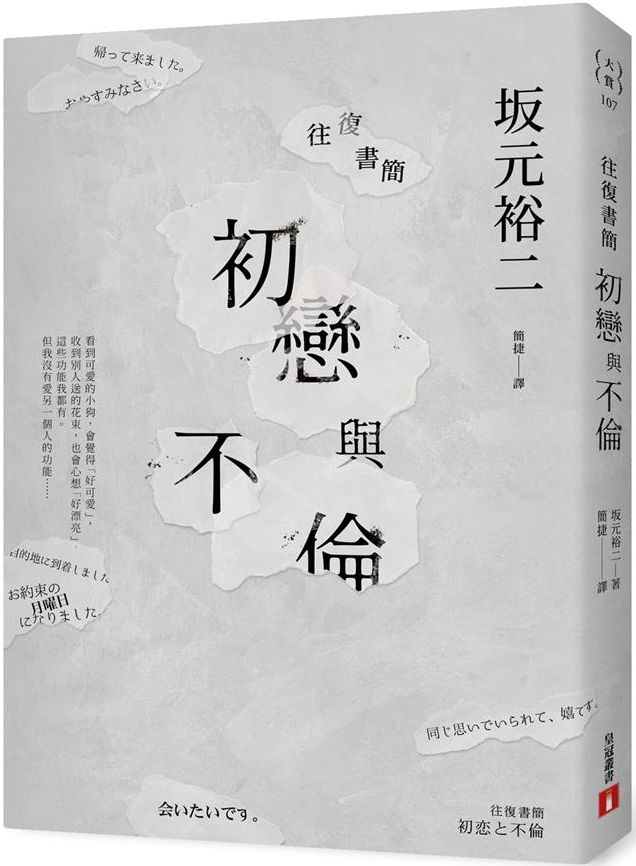
I graduated from drama, and I have been writing scripts for more than ten years since I graduated. Like a female worker in a text factory, I feel that I am gradually drying up, and I want to absorb different nutrients through publishing. Sakamoto's scriptwriting method is not the same as what I have learned. Many people say that his method can be established because he is in Japan and has such a position, so he cannot learn it. But when I saw this book, it was like slapping me all the time, no matter how many times I read it, it kept slapping me.
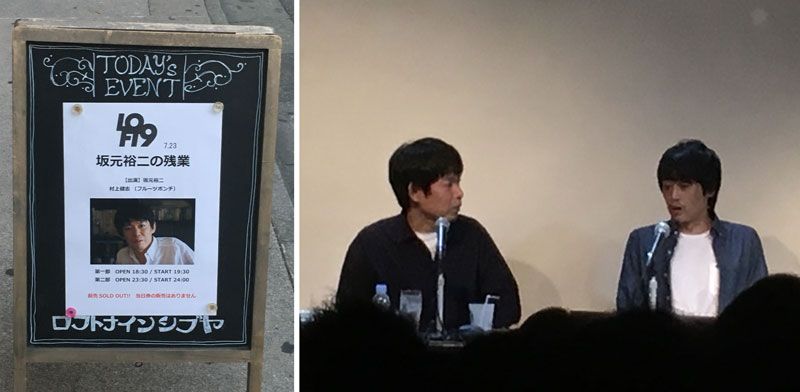
Liu Zijie (hereinafter referred to as Liu): I think Taiwanese screenwriters should find an outlet for themselves when they work like female workers in a text factory, where time is very tight and the pressure is very high. For me it's writing novels. Although it is impossible to make money from writing novels in Taiwan, I can use the income from writing the script to support the life of writing novels for a few months, and that is the outlet for me to switch. When the novel was published, it got the resonance and response between editors and readers, and it seemed to gain a little enthusiasm before investing in the next script.
But if I want to do publishing, I may not be able to have such a big mental effort to bear. I have asked other publishers about the copyright of "Playwright Yuji Ban Yuan", and they have assessed that it is not easy to do. The difficulty is that every photo in it has copyright.
Cai : Frankly speaking, if I knew it was so difficult to publish, I probably wouldn't have done it. Although writing the script is also very hard, it is a different kind of hard work, completely unimaginable.
Liu : Did you use "Guangsheng Publishing" from the very beginning?
Cai : When the case was filed, it was called "Magic Moment." It was only in the later stages of preparation that I thought of naming it "Guangsheng".
I like the character "Light Born" very much, and I immediately think of the image of "Light from the Scholar". Mitsuo is a very representative character in Sakamoto's writings. He says "Xin い! Xin い!" (very painful, very painful) every day, and still strives to struggle and live in this world he doesn't like every day. He complained while working hard and didn't like going to drinking parties, but he went anyway. He is actually similar to me. I say that I am in pain every day, and I am still writing the script; he is ordinary, full of flaws, but full of vitality, much like my characters and yours.
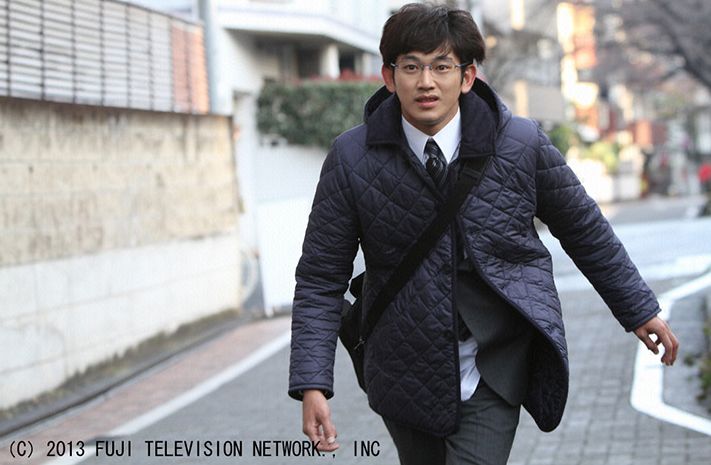
I think that in Sakamoto's dramas, most of the male characters are ordinary, timid, cowardly, and full of shortcomings; on the contrary, the female characters are mostly determined, capable, and able to hold up the image of the sky. Futaba of "Stay Alive", or " Mother " or " Woman ", I think Sakamoto wrote the female characters with respect. But honestly I like his male characters more than his female characters.
In addition, this is also a strategy, because I know that the publisher's name "Guangsheng" will cause an effect among Sakamoto fans later.
➤The protagonist doesn't have to be very capable, it can also be a marginal person
Liu : I also like Guangsheng very much. It stands to reason that I should hate this kind of locomotive, but such a character makes a list of favorite animals every New Year.
Cai : Guangsheng is the "world-weary" we often talk about in Taiwan, but while talking about world-weariness, we've been working hard!
I also like "Reminiscence" (also translated "The Love We Talked About That Year"), which describes the details of young people's hard work and struggle in society, and the lines are also written very well, such as "Tokyo is not a place where dreams can be realized. , Tokyo is a place where you don’t realize that your dreams are not realized.” I think Sakamoto is very good at writing such words.
Liu : I really like the kind of "crooked" characters, such as Gansheng in "Quartet". Miyato Kankuro had a lot of great performances when he was an actor, and he was very good at playing marginal characters who escaped from normal life.
Cai : Japanese movies often have such characters, but Taiwan is relatively rare.
Liu : If this kind of role is not handled well, the audience will keep asking the screenwriter: Why did he run away from home for no reason? What is the reason behind that action? Plots like "Because I love him, but I don't like him" won't work in Taiwanese dramas.
Cai : Taiwanese employers will ask you: What are the abilities of this character? What makes the audience like it? Everyone has an established impression of "what the protagonist should look like", but Japanese movies and TV often break this stereotype.
Liu : I also like "Father's Back" very much. There is one detail in the play that left a deep impression on me: Dad asked his daughter how did he know that there were other women in the family? The daughter replied, "Our mayonnaise is put in with the bag." At this time, the audience can see through the camera that the mayonnaise in the refrigerator has no bag. Through the gentle words of my daughter, Hikaru Mandao, I felt the father's heartache: This is the habit of our family, the little secret between our father and daughter.
Cai : My favorite character is Yang Gui from "Stay Alive". He also has many flaws, cowardly and world-weary. He was very depressed because of his past self-blame. He lived with his father in a fishing boat shop by the lake. It was not until he met the heroine and his father passed away that he realized that he had to change, and then he lived actively. Although he has many shortcomings, he continues to work hard to find a way to live and to use his own way to influence other people around him.
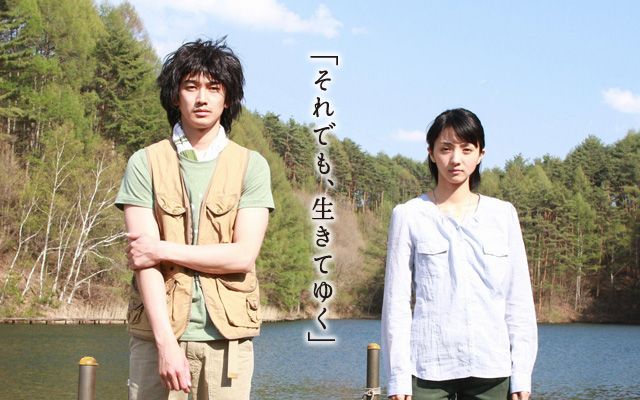
Liu : I would also like to talk about two female characters that amaze me, that is, the roles played by Takahata Mitsuki and Matsuoka Moyu in "Problem Restaurant". At that time, the two had just debuted, but when I saw it, I felt that they would definitely become popular, it was really amazing. Mr. Sakamoto gave them a lot, especially Takahata Mitsuki. Watching her performance in the play is so terrifying, you will be intimidated by the terrifying power in her. And the inferiority complex and cowardly appearance of Matsuoka Mayu in the play is so distressing.
Cai : Sakamoto should be very partial to Takahata Mitsuki, because the roles given to her are all great, and so does the little devil Yoshioka Riho in "Quartet", Sakamoto will support the actor.
Liu : I think because of this, actors will recognize this sign. I remember in an interview earlier, I was asked what kind of screenwriter I wanted to be. At that time, I said: You don’t need to pay a high price or win a lot of awards. As long as the actors hear your name, they will want to play your play.
"Rolling Stone Love Story" has an episode "New Love", starring Ming Dao and Yang Jinhua. They both like the script and the characters. Ming Dao later came to China for development, and he still expressed through his agent that he wanted to cooperate with me again. Unfortunately, the environment in China is rather difficult.
Cai : Still a wonderful experience.
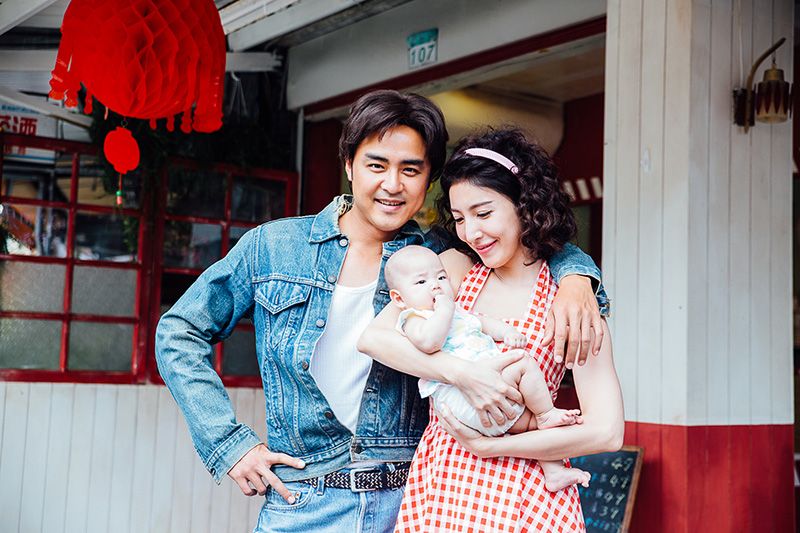
➤ Can a screenwriter "do not write a story outline"?
Cai : When you are writing your lines, do you write scenes of "small talk"?
Liu : I would hope for a little more, but I am afraid that it will be considered as irrigation. I hate the most when the script comes back and the comments above say, "There is no conflict in this scene."
Cai : The management felt that the audience would not be able to watch it without arguing.
Liu : Of course, we also know what kind of plot promotion is effective, and we will try to avoid some scraps, but sometimes moderate lubrication is important. But it would be a pity if the management didn't have the patience to watch it, or if the actors couldn't catch that point.
Cai : Sakamoto is famous for his long lines. Tai Ying also said that every time he saw a long line, it was a letter of challenge to him, and he would take the challenge from Sakamoto seriously. When I first entered the industry, I wrote a play in which an actor could not memorize more than three lines of lines. At that time, the producer called me in the middle of the night and scolded me: "Why do you write lines with more than three lines!" Since then I have been taught that Don't write too long lines. So far, every time I write more than three lines of lines, I get scared and don't know if the actors can eat it.

Liu : Influenced by Sakamoto, I really wanted to do two things, one of which was "not writing a storyline". I'm very bad at writing an outline, if I can, I won't write it. Who is the synopsis for? I think a lot of times it is to let TV stations and investors facilitate their decision-making.
Cai : But without an outline, how would you know the outline of the story? Is it already in your heart?
Liu : I think it's more like raising them (story) and letting them grow slowly.
Cai : Very novelist's way.
The method taught in drama is to set the theme and sub-topics of the story first. According to the events of each character, the outline and diversity outline must be written first before the script can be written, one step at a time. After developing this method of work in school, I have been doing this all the time.
Seeing that Sakamoto can complete the script without the outline of the story, and it is still an on-screen drama! During the on-screen drama, he insisted on writing only 3 episodes of the script, and continued to write after watching the performance of the actors. How can this be done? Rather than saying that he trusts the actor, it is better to say that he relies on the actor. He watches the actor's performance, and then gradually builds the subsequent story development.
Liu : I think the best work experience is that when an actor arrives, he makes a chemical change to the character according to the actor's characteristics, and then revises the script. The most impressive thing is that when filming "Marriage Notice", the plot is that Sui Tang seeks marriage with different people. Wu Kangren plays a magician who will keep coming out to make trouble with Sui Tang. Originally, I wrote this character as a nuisance, but after he played the first scene, the director called me and said, "You must come and see it, because Generen is not annoying when he plays it, and it is necessary to make He changed the script." I went to the scene to watch Kangren's performance, he was so cute.
Cai : In my work experience, I seldom know who the actor is in the early stage. Most of them write the script first. When the production period arrives, the producer finds the actor and director. After the director comes in, he starts to change the script. It is rare for everyone to work together. . To be honest, in my more than ten years of screenwriting career, I have rarely been invited to a celebration party where the film crew is finished. Because screenwriters usually work in pre-production and are not involved in post-production, they are often overlooked. I think the entire environment has insufficient respect and awareness for the screenwriter.
Liu : The current environment in Taiwan still treats the screenwriter as a staff member of the crew, and provides the crew with an easy-to-use instruction manual for filming and assembly. Filming is like assembling IKEA furniture, the director is the person who assembles it, the art is the boards and screws, and the screenwriter is the IKEA manual, which is listed step by step. Anyone who has built IKEA furniture knows that it is impossible to build without that manual. When a good tool makes everyone work smoothly, I feel that I have a clear conscience - not deliberately shrinking myself, but the environment.
Cai : Sakamoto mentioned in the book that he feels that TV dramas are not individual creations, but group creations. He has always been very aware of this, and he will change the script every day in response to various requirements of the scene. God also works like this.
Liu : I thought about changing this environment. Later, when I was working on "Rolling Stone Love Story", I put the screenwriter in the front. At that time, I found 10 well-known screenwriters online. First, I had the outline of the story, let the director pick the outline, and then had the script. The director was more likely to complete the script together. It was a good experience, and the screenwriters felt respected.
➤ Read the screenwriting book after watching 100 movies
Liu : Actually, I'm curious, what kind of help does the screenwriting method book currently on the book market have for online screenwriters or students? Because I am an airborne force myself, those things are conservative for me. Sometimes I finish the script, and then use those methods to check, such as "is there a turning point in the seventh scene" and so on.
Cai : When I was in school, everything from Greek tragedy to modern theater was already engraved in my mind. After I bought those big screenwriter bibles and read them, I thought, "Okay, I know, but I can't do it." Maybe I'm a little uncomfortable, and audiences in different countries like different things. Although some guidelines are common, but The genres, cultures, and social backgrounds are really different.
However, I think it is very meaningful for "Signal" and "Secret Forest" to have playbooks. These two playbooks are very good, and they are very useful for screenwriters or fans. When I write genre dramas, I often use these two books to study, which may be more useful to me than the Bible, and I enjoy feeling the pictures in the words.

Liu : In some screenwriting workshops, I would tell the students, "Watching 100 movies is better than reading a screenwriting bible." Build your own taste and value from the movie-watching experience, um... let me correct it , after watching 100 movies, go to the screenwriter bible.
Cai : I like reading scripts very much. If I read the scripts first and then watch the episodes, it is because of the ingenuity of the director and the results of cooperation between various departments. It is a different taste. If I watch the episode first, I may be busy listening to the lines on the one hand, and watching the director's technique on the other, and I will have different feelings and gains.
I hope that drama books can be published in the future. Although Taiwan has never had the habit of reading scripts, I have studied drama myself. I hope readers will not think that the script is far away.
Liu : The Nobel Prize for Literature will also be awarded to playwrights, but in Taiwan's genre recognition and practical screenwriting, scripts are not considered a genre that can be read. The screenwriter awards of major film festivals are also based on the final filming. of film and television works. I said earlier that I was influenced by Sakamoto two things, in addition to not writing the outline of the story, the other is that I want to hold a "reading drama". You don't need to run the production system of a TV station, and you don't need a director. You only need a screenwriter and a few actors who have a tacit understanding, a good space, and a good atmosphere. Are there any other possibilities for the script besides video? Maybe Taiwanese screenwriters can try.

Cai : I myself held several drama reading clubs when I was a student, and I always feel that Taiwan's acceptance of drama reading clubs is still very low. But I think it's good to do this, and it can be used as an aid for script promotion. A while ago, Sakamoto also collaborated with Hikaru Mandao on a reading drama and toured small towns all over Japan. I would love to ask him what his intentions are, he should be doing it consciously.
Liu : I used a novel to read a play at a novel presentation conference before, and I invited readers to read it together on the spot. The readers liked it very much. But I don't know if they will come to participate after it develops into a ticketed performance?
Cai : It is definitely possible, but it may be difficult for those who are just starting out. Taiwanese readers did not have this habit in the past, but the new generation may have new thinking. Pushing it step by step, if someone starts doing it, I think it's full.
➤Persistence and hard work is also a talent
Cai : As a screenwriter, I think setbacks are everyday. The script is very subjective. There is no grading standard for screenwriters. Because of what I wrote today, it is not obvious that I have made progress, and the road to screenwriting will not become smoother just because I won an award. Sakamoto said in the documentary that he is a patient type. He is obviously a genius, but he still thinks he is a patient type.
Liu : I often feel that the success of a screenwriter is not only his work and talent, but also his ability to endure. Facing the setbacks of one's own ability, or dealing with the setbacks of the TV station and the crew, after experiencing so many setbacks, you can continue to write, and it becomes your ability.
Cai : Having been in this industry for so long, I really feel that hard work and perseverance are the talent. As for whether it is successful or not, it is actually luck. After the script is finished, can it be filmed? Can it be executed by a good production unit? Accepted by the audience? It's impossible to predict, so I can't say that I can do a good work by working hard alone.
Working as a screenwriter in Taiwan, I am pessimistic and pragmatic. I often call myself a screenwriter female worker. In the course of more than ten years, no matter whether it is individual writing or group work, I feel that I have worked very hard just to maintain my enthusiasm.
Liu : How do you maintain enthusiasm?
Cai : To do field tune. The field adjustment process allowed me to see many people from different classes in Taiwan, and to see the hard work and dedication of others, which gave me a lot of energy to maintain my passion for work. Because of the obstacles in my creation, I want to contact different fields and see the world from a more perspective, not just locked in the world I imagined.
I think it's more interesting to do field tunes than to write scripts. No matter whether the information collected is useful or not, I feel that I have gained something -- something I gain personally, not necessarily a gain from the script. Sometimes I think I like Tian Tiao more than writing scripts. Does Zi Jie like writing scripts?
Liu : I am.
Cai : Writing a script or writing a novel, which one do you prefer?
Liu : I think it is different. In the fan confession letter I wrote to Sakamoto, I also wanted to ask him if he prefers to write novels.
Cai : Ban Yuan has been writing novels for three years, but he still can’t write them.
Liu : In fact, the writing process is full of joy. The difference is that the novel is finished once the novel is written, but the beginning is only after the script is written. What will be the fate after it is born? How twists and turns will the growth process be? are still unknown. I think the script is a kind of "giving", especially if you know who the actor is, think of a new setting, or give the character more quotes, it's really happy.
➤ Recognize reality and understand human suffering
Cai : It can be seen from Ban Yuan's works that he really understands the suffering of people. One person in "Quartet" wrote to the four protagonists, basically saying, "I'm curious that your playing is like a chimney on the roof, it's not worth it, but why do you keep going? I used to be a player myself. , but I gave up after I knew I was completely unable to do so, why don’t you all give up?” I was very moved when I saw it, Sakamoto fully knew the pain of realizing his dream, he wanted to work hard, but he couldn’t do it and couldn’t let go of the struggle and the struggle. Difficulty. Why would he know? Isn't he a genius? After reading his book, I realized, "Ah! He really knows."
Liu : And he is very sharp. There is a passage in "Quartet": "Achieving requirements is first-class work, and trying your best to complete is second-class work. For third-class people like us, as long as we complete the work that makes everyone happy. A third-class performer who holds ideals is only a fourth-class performer. That's it." Earlier, I held a screenwriting class in Taichung, and at the end of the class I posted this sentence, in fact, I hoped that the students could recognize the reality.
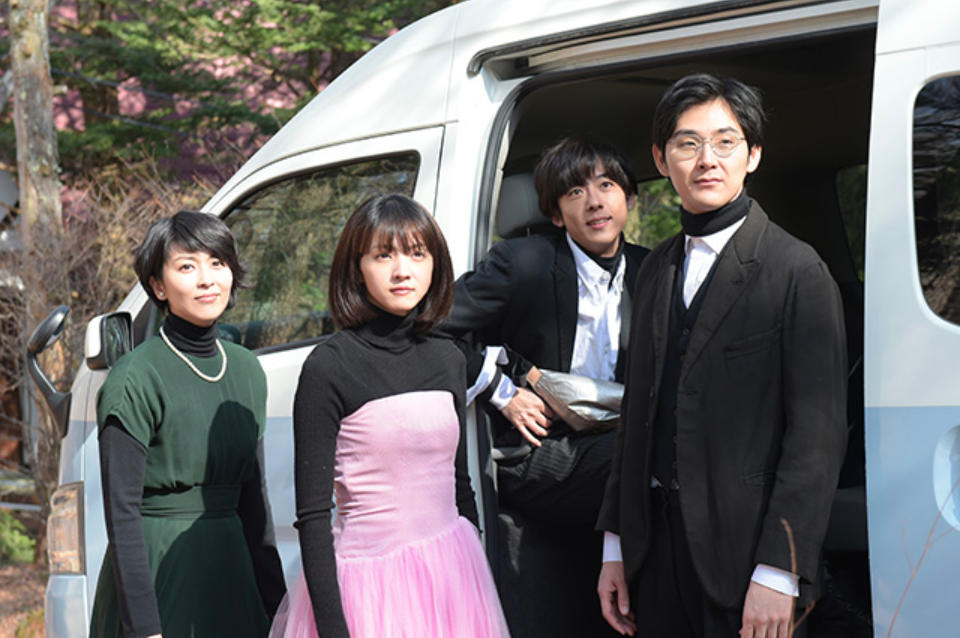
Cai : One thing I am curious about is that "Quartet" has been praised as a drama, but its ratings in Japan are actually not high. If this work was made by Taiwanese, would it be so good?
Sakamoto's IP has been remade in Korea, China and Turkey. The Korean remakes of "Long Live Divorce" (최고의이혼) and " Mother " are both successful. Due to the different cultures of different countries, it is actually very easy to fail if you do not make appropriate changes and integrate local cultures. But Sakamoto is really good at choosing topics. I think he is the only Japanese screenwriter whose IP can be sold to countries around the world across cultures.
Liu : Ban Yuan has definitely done enough Tian Tiao, but he can go beyond and improve. He will not be bound by the facts and reality of Tian Tiao, but find the axis of human nature in the style of "Saka Yuan Liu". Very precious place.
Cai : And he thinks that there is no answer without an answer. It doesn't matter, the answer is in each of us. He didn't like to explain why he wrote that way, what the point was. He thought, "You can see it for yourself, and you will know when you see it."
Liu : "You can read it for yourself, I wrote it all." I really want to learn it.
Cai : And he was not arrogant, but said, "I believe that what I wrote must reach your heart." He did not want to interpret what you have seen. What you see is what you see.
Liu : In Taiwan, when we write a script, we spend a lot of time discussing the plot, and then we will be bound by cause and effect. We must focus on the characters’ behavioral motives before we can push them down, not directly from the characters themselves. story. This is the more painful part of writing screenplays in Taiwan.
In the future, I hope to try to make the characters come alive and let the story follow the characters. The advantage of this is not only when writing the script, but actually for the actors, directors, and the entire crew. It will be on a line, one by one, and the actors will be functionally filled in to serve the story.
Cai : I am also changing the way I work recently. Instead of writing the outline first, I will write the character autobiography first and then the script. Although it is very slow to write, but I just want to give it a try.
Liu : It will take a while for that character to grow up slowly.
➤The screenwriter actively excavates good works
Cai : Compared with Japan, I think it is much easier to enter the screenwriting industry in Taiwan. There are many talents in Japan, and there are actually very few people who can squeeze into the screenwriting industry and make their debut. Both Sakamoto and Nojima Nojima made their debut through the Fuji TV Youth Screenplay Award. Saka Yuan first worked as a co-screenwriter in the production company and wrote "Tong. class. After being recognized, "Tokyo Love Story" was delivered. It may not be so difficult to debut in Taiwan, but it is more difficult to stick to it.
I started working as a screenwriter before graduating from the graduate school. What was more difficult was the instability of this environment and the hard work, which made few people persevere.
Liu : The contract with the screenwriter was only implemented in the past few years. I worked on a writing team when I was in graduate school, and I wrote a few episodes and then stopped for some reason. After a period of time, they found someone else to continue writing. A few years later, I met the producer on different occasions. The producer was very warm. He called me aside and sealed ten thousand in a letter. Yuan plug to me.
Cai : So touching!

Liu : You also know that when writing the script, the production team also worked very hard. They ran the team without funds.
Cai : Now the ecological environment of screenwriting is really not the same as before. You can't tolerate being vague there. I think it's good. But to be honest, sometimes I don’t dare to sign a contract when I see it, because most contracts have very low guarantees for screenwriters.
Liu : Sometimes I think, for those cases of severed heads, if the contract is not signed, doesn't the other party think that the thing will be taken by us? He must not feel it, so he did not sign the contract and did not pay.
Cai : Instead, we were worried that the other party would take things away.
Liu : Later, I entrusted a brokerage company to help me deal with this. First, I made a 2-page outline. The other party thought that they could not do it at this stage, but they still wanted this thing. Money, let this thing belong to them.
In addition, how long is the duration of the rights; if the film is not made, can the screenwriter get it back; whether the publishing rights of the playbook belong to the screenwriter... These should all be striven for in the contract. I would also add one earlier: If it is rewritten as a novel, the publishing rights are mine, and it depends on whether the other party is willing to accept it. I think it can be discussed more flexibly and in detail. Otherwise, it will be easier for the employer to buy it out now, and he will decide what to do after that, whether to adapt the comics or sell it to which country.
The current cases in Taiwan are all special cases, and they have not yet entered the stage where they can be followed or learned, and they have not become a signboard that will not break like Japan. If enough exceptions are accumulated, they will become experience. For example, "The Sixtieth Teenager Turns Adult" and "The Cultivation of a Lazy Girl" are all successful adaptations. The so-called success can be seen on the sound waves, ratings, and awards, which can make traditional or OTT investors more confident. Taiwan has only just started, and I don't know what will happen in the future, but it seems to be something to look forward to.
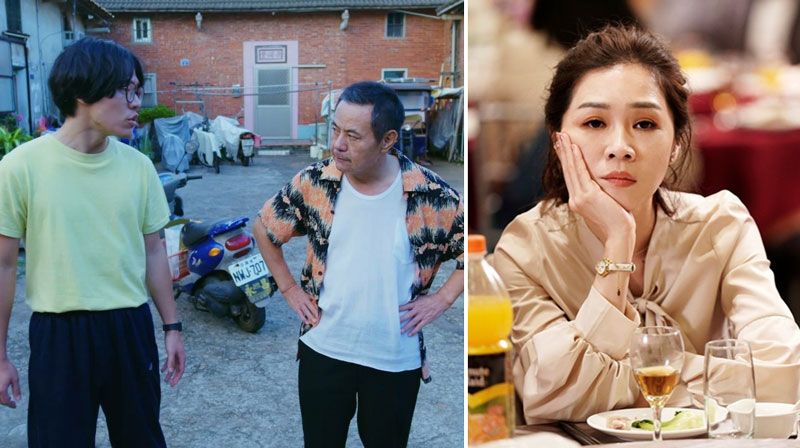
If I want to talk about what the screenwriter can do, I hope that the screenwriter can actively dig out good works, and the screenwriter can propose to the management: "I think this thing can be adapted." I believe that many screenwriters have something in mind that they want to adapt.
Cai : I also hope to do some things with my little effort, so I want to borrow the practices of countries with similar cultures such as South Korea or Japan. Although the environment is different, if I learn more about and exchange their practices, I believe it will be helpful.
I'm a layman in publishing, learning by doing, and getting a lot of setbacks, but setbacks can also be nourishment. Because this is not our business to make money, we are making it as a work. Whether it is a one-year book or a half-year book is not related to income, as long as it does not go bankrupt, it can be recycled enough to make the next book.
The next book from Kwangsheng Publishing House should also be a screenwriting work, preferably Sakamoto Yuji (laughs). We will continue the original intention of the establishment and continue to publish books related to film and television or screenwriting, not limited to Japanese and Korean, and Taiwanese works are also OK, as long as they are good works. ●( The original text was first published on the OPENBOOK official website on 2020-09-25)
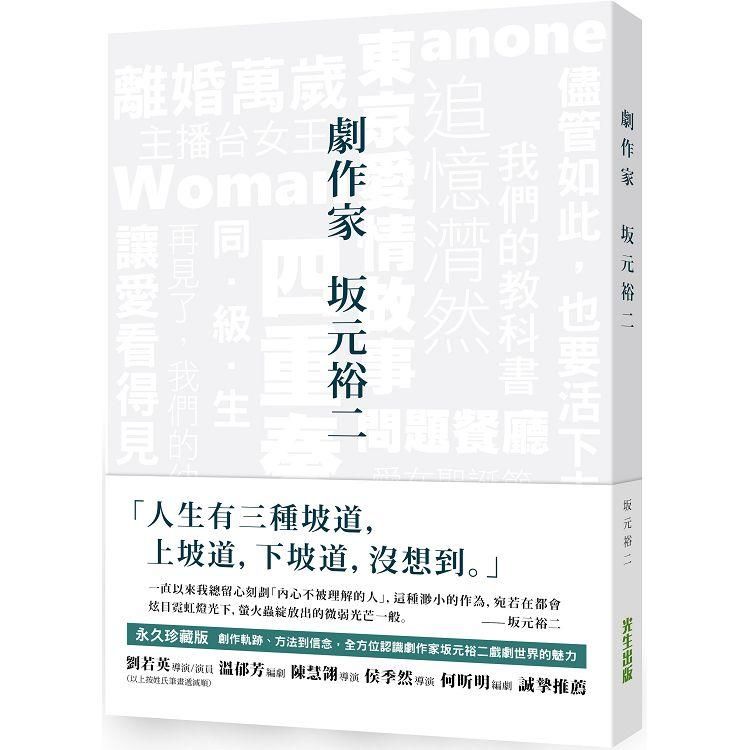
Playwright Yuji Sakamoto
Author: Sakamoto Yuji
Publishing: Guangsheng Publishing
About the Author Yuji Sakamoto
Japan's premier playwright. In 1991, the TV work "Tokyo Love Story", which was adapted from Chaimenwen's comics, was not only popular in Japan, but also led the trend of Japanese dramas to sweep the Chinese world. His creative style is unique, using the most delicate dramatic scenery to write the deepest empathy in everyone's heart. The release of the work has become a topic of conversation, and it has also been remade by many countries, becoming a Japanese playwright that has attracted much attention overseas.
The main TV drama works are "Tokyo Love Story", "Our Textbook" (26th Mukoda Kuniko Award), "Mother" (19th Hashida Award), "Stay Alive" (Art Selection Award Newcomer) Award), "Long Live Divorce", "Woman", "Problem Restaurant", "Remembrance", "Quartet" (Arts Selection Award, Minister of Education, Culture, Sports, Science and Technology), "anone", etc.
Like my work?
Don't forget to support or like, so I know you are with me..
Comment…